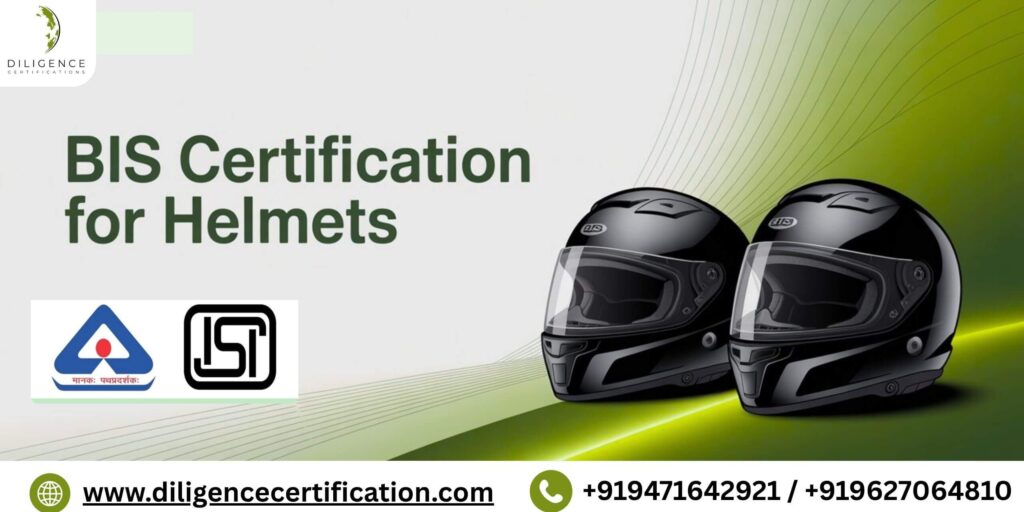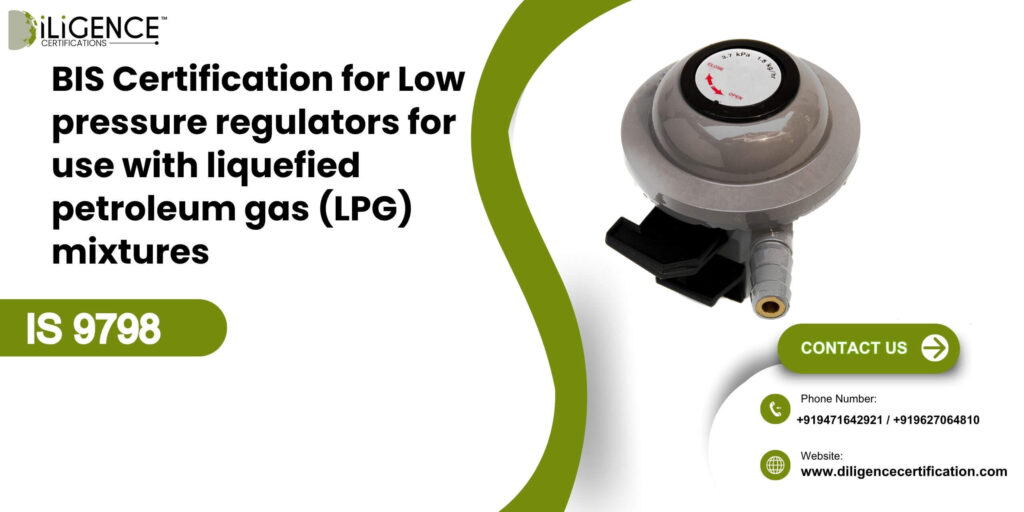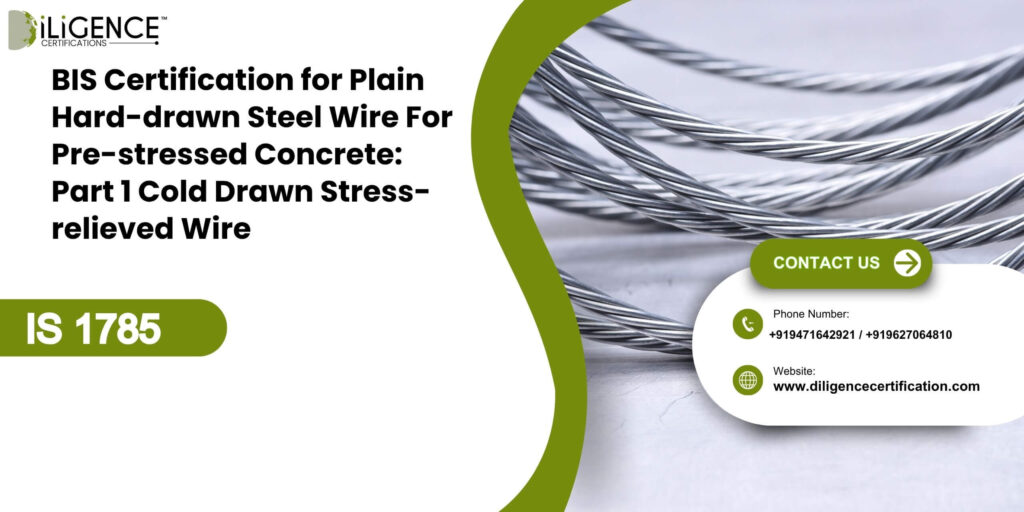- BIS certification for helmets under IS 4151:2015 ensures all two-wheeler helmets meet India’s top safety standards.
- The 2020 Quality Control Order mandates ISI certification—non-compliance leads to legal penalties.
- IS 4151 covers impact resistance, visor quality, retention strength, and flame resistance.
- Certification involves BIS portal application, testing in approved labs, and factory audits.
- Applies to domestic & international brands; process support from consultants boosts success rate.
Introduction

One rainy evening in Pune, Mr. Singh’s son, who was 22 years of age experienced a minor accident on his scooter. A loose metal railing fell straight down onto his head. Luckily, he was wearing a certified helmet that bore the BIS ISI mark. The helmet labelled under IS 4151:2015 absorbed the impact. The doctor said after that “If you did not have that helmet, things would have been different”.
This event is a real-life example of why the BIS certification of IS 4151:2015 is vital, because helmets must be certified for a direct purpose—protection. In India, over 35% of fatalities on the roads are due to two wheeler accidents. The helmet is not only a necessity of life, it is also a legal requirement.
What is BIS Certification for Helmet?

The Bureau of Indian Standards (BIS) is India’s national standards body. For helmets, BIS gives effect to IS 4151:2015 an exhaustive safety and performance code. A helmet can show the ISI mark if it meets the requirements of the standard, which indicates that it has been assessed for safety, structural integrity, and quality.
The ISI mark is a seal of approval, not just a logo. It gives buyers confidence that when they see the ISI mark on a helmet that means that specific lab tests at an accredited laboratory have been passed. The tests include:
- Compression shock absorption
- Penetration resistance
- Retention system robustness
- Flame resistance
- Optical clarity and dimensions for visors
Why is BIS Certification Necessary For Helmet?
Safety:
- India witnesses 1,200+ two-wheeler accidents daily.
- A helmet reduces fatal head injuries by 70%.
- Only certified helmets meet the necessary protection benchmarks.
Legal Requirement:
- Under the Helmet for Riders of Two-Wheeler Motor Vehicles (Quality Control) Order, 2020, only BIS-certified helmets are allowed for sale.
- Selling non-certified helmets can lead to fines and imprisonment under the BIS Act, 2016.
Market & Consumer Trust:
- The ISI mark boosts brand credibility and customer confidence.
- Certified products are eligible for bulk deals with government and private fleet companies.
IS 4151:2015 Explained: Indian Helmet Standard
The IS 4151:2015 is the latest Indian Standard that sets out detailed testing and design requirements for motorcycle helmets:
Key Parameters Tested:
- Impact absorption: Must withstand a drop test at multiple angles.
- Penetration resistance: Must resist pointed object impact.
- Retention system: Chin straps and locking systems must remain intact under pressure.
- Flame resistance: Shell must self-extinguish in flame test.
- Visor clarity: No distortion or diffusion.
- Labelling and warnings: Must carry accurate information.
These tests simulate real accident scenarios, ensuring helmets perform under pressure.
Step-by-Step Process of BIS Certification for Helmets

1. Application Submission
- Apply via BIS Manakonline Portal
- Fill Form VII and submit necessary technical data and manufacturing details.
2. Document Scrutiny
- BIS reviews documents such as:
- Quality Manual
- Test Certificates
- Process Flowcharts
- Product Drawings
- Business Incorporation Proof
3. Factory Audit by BIS Officials
- BIS team visits the facility to check:
- Machinery adequacy
- Raw material traceability
- Quality control systems
- Batch sampling methods
4. Sample Testing at BIS-Recognised Lab
- Products are sent to BIS-accredited labs for standardised testing.
- Each model must pass all the IS 4151 parameters.
5. Grant of BIS Certification
- On passing inspection and lab tests, BIS issues the certificate.
- Manufacturer can now use the ISI mark on certified helmet models.
6. Surveillance & Renewal
- Periodic audits ensure continued compliance.
- Licences are typically valid for 1 or 2 years, with renewal processes.
Domestic vs Foreign Manufacturer Requirements
| Aspect | Domestic Manufacturer | Foreign Manufacturer |
| Audit Location | Indian Factory | Foreign Factory + Indian BIS Liaison Office |
| Testing Labs | In India | BIS-certified lab in India only |
| Representation | Direct | Through Authorised Indian Representative (AIR) |
| Timeline | 8–10 weeks | 12–16 weeks |
Cost of BIS Helmet Certification in India
The cost of obtaining BIS certification for helmets under IS 4151:2015 varies based on several factors, such as the number of models, scope of testing, and whether consultancy support is used. Below is a general breakdown of components that may influence overall certification expenses:
| Government Application Fee | Official charges for filing the certification application with BIS. |
| Lab Testing Fee | Charges for testing helmets at BIS-recognized laboratories per model submitted. |
| Consultant Charges | Optional fees if you engage a BIS certification consultant or agent. |
| Annual Renewal Fee | Applicable for yearly renewal of the ISI license after the initial approval. |
| Factory Audit Logistics | Expenses incurred for factory inspection, including travel, coordination, etc. |
The total cost will depend on your specific product line, manufacturing setup, and whether additional testing or documentation is required. You may consult a BIS certification expert for a tailored estimate.
How to Handle BIS Certification Delays and Rejections
Common Pitfalls:
- Submitting outdated or incomplete documents.
- Lab testing from non-accredited centres.
- Poor factory preparedness.
How to Fix:
- Engage with a BIS consultant.
- Pre-audit your plant with a third-party.
- Use checklists and mock inspections.
How Diligence Certifications Helps You to Get BIS Certified
Getting BIS certified can be complex and time-sensitive. It involves strict product testing and documentation requirements. That’s where Diligence Certification comes in.
With Diligence Certifications, you get:
- Standard verification under IS 4151:2015
- Pre-testing guidance to avoid product failure
- Full documentation preparation and BIS portal filing
- Support during factory inspection and audit
- Fast-tracked license issuance
- Guidance on ISI marking and packaging compliance
Whether you are a domestic manufacturer or an international brand importing helmets into India, Diligence Certification ensures you are fully compliant, stress-free, and ready to go to market.
Diligence Certifications: Your Partner for BIS Certification of Helmets
Diligence Certifications is a trusted name when it comes to obtaining BIS Certification for helmets in India. With years of experience in the certification and regulatory compliance domain, Diligence Certifications offers end-to-end consultancy for manufacturers, importers, and brands seeking ISI mark certification for helmets.
Why Choose Diligence Certifications for Helmet BIS Certification?
- Expertise in IS 4151 and IS 2925 Standards for motorcycle and industrial safety helmets
- Complete documentation support – application, test reports, affidavit, and more
- Lab testing coordination with BIS-recognized laboratories
- Liaison with BIS officials for inspection and approval
- Assured guidance from application to grant of license
- PAN India services for Indian and foreign manufacturers
BIS Standards for Helmet Certification:
- IS 4151:2015 – Protective helmets for two-wheeler riders
- IS 2925:1984 – Industrial safety helmets
Whether you’re an Indian manufacturer or a foreign brand, Diligence Certifications can help you navigate every stage of BIS Certification for helmets smoothly and compliantly.
Conclusion
The need for BIS certification for helmets to IS 4151:2015 is no longer optional, it represents the foundation of road safety regulation and manufacturing integrity in India. For helmet manufacturers, this certification fulfills legal obligations and strengthens the market value of the product and brand reliability.
As riders continue to recognize the dangers of non-certified rider gear, the demand for BIS helmets is further accelerating. Retailers, fleet operators, and even e-commerce platforms are now focusing more on ISI-marked rider gear. In this environment, non-compliance could result in losing business, fines, or damage to the reputation of your brand.
With the ISI mark under IS 4151:2015, you will have an immediate advantage in the long-term competition of the two-wheeler accessory market in India. Whether you are a startup and this is your first helmet launch, or an established OEM with a BIS renewal, engaging in the marks process is an investment in quality, credibility, and life-saving.
If you are in need of professional support for BIS certification for helmets to IS 4151, contact our BIS consultants today at Diligence certifications for end- to-end support and certification solutions regarding everything from documents to audit clearance. Safety can be your business advantage.
Frequently Asked Questions
What is the BIS certification for Helmets under IS 4151:2015?
This is a mandatory quality certification from the Bureau of Indian Standards to assure that the helmet has met all of the IS 4151:2015 safety standards.
What is the significance of the ISI mark on helmets?
The ISI mark provides buyers the assurance that a helmet has passed the BIS tests, which means it complies with Indian standards, the expectations of the consumers, and is further likely important in promoting quality in helmet manufacturing.
Who is required to have helmet BIS certification?
All helmet manufacturers and importers in India are required to obtain a BIS certification under IS 4151:2015 before distributing and selling their helmets. This has been made mandatory under the 2020 Quality Control Order.
What happens if I sell an non-certified helmets?
If you manufacture or sell a non-BIS certified helmet brand in India, this is a punishable offence under the Bureau of Indian Standards Act, 2016 which may vary from fines, the product being confiscated and destroyed, or a jail term.
How long will it take to obtain BIS certification for helmets?
BIS certification takes about 8-12 weeks for domestic manufacturers and 12-16 weeks for import brands depending on readiness and documentary evidence being provided.
What tests are conducted on helmets?
Tests consist of drop impact, penetration, retention, flame resistance, and visor clarity.
Can foreign companies get BIS certification on helmets?
Yes, foreign firms can get BIS certification, but you will need to appoint an Authorised Indian Representative (AIR) and submit samples for testing at BIS accredited Indian laboratories.
What documents are needed to get BIS certification on helmets?
You will need technical drawings, QC plan, manufacturing description, samples of the product, and whatever business registration documents you have.
Where do I find helmets to get tested for BIS approval?
Only BIS accredited laboratories with CSIR accredited or NABL accredited testing helmets as per IS 4151:2015 guidelines may certify helmets.
Does one BIS licence cover multiple helmet models?
No, you will need to apply for a separate certification for each model, or family of models unless the helmets are the same in terms of critical structural measurements.








 BIS Certification
BIS Certification
 CDSCO
CDSCO
 CPCB
CPCB
 LMPC
LMPC
 WPC Approval
WPC Approval
 Global Approvals
Global Approvals
 TEC
TEC
 ARAI
ARAI
 BEE
BEE
 ISO Certification
ISO Certification
 Drone Registration
Drone Registration
 NOC For Steel
NOC For Steel



















 Business Registration
Business Registration















 Legal Services
Legal Services

















































